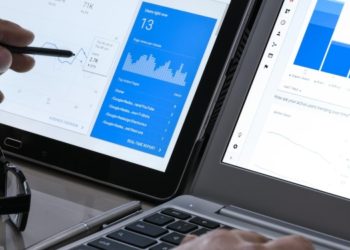The latest research by leading BNPL provider, Butter, has provided insight into the scale and influence of the e-commerce retail sector in the world’s ten biggest e-commerce nations.
In recent years, e-commerce retail has boomed. By 2020, the sector was growing with confidence, but when the epidemic hit, it expedited this growth and online retail exploded.
Today, e-commerce retail is fast becoming the de facto choice for shoppers across the world, bringing billions, if not trillions, into national economies from China and Spain to India and beyond.
The world’s biggest e-commerce retail market is, unsurprisingly, China. In 2020 alone, almost $2.3 trillion was generated through online retail. When comparing this figure to China’s Gross Domestic Product (GDP), we can get an understanding of just how important e-commerce is becoming for the country.
China’s GDP is $14.7 trillion. This means that the $2.3 trillion created by e-commerce retail is comparable to 15.6% of the overall GDP. No other country on earth comes close to having a e-commerce sector of such immense scale.
When using the measure of e-commerce sales versus GDP, the nation that comes closest to China is South Korea where, in 2020, e-commerce retail generated $111 billion. The nation’s GDP stands at $1.6 trillion, meaning that e-commerce is worth 6.8% of the country’s entire wealth.
However, the nation to come closest within the western world is the United Kingdom, where total e-commerce retail sales of $180 billion equate to 6.7% of the nation’s GDP which currently stands at $2.7 trillion.
In 2020, the USA’s e-commerce retail sector generated an enormous $795 billion, almost $600 billion more than the UK. But the US has a GDP of $21 trillion, dwarfing that of the UK, which means US e-commerce retail only compares to 3.8% of the nation’s GDP.
These findings suggest that, despite generating less money in dollars and cents (or pounds and pence), the UK’s e-commerce retail sector is, domestically, far more influential and powerful than the USA’s. The implications of this are wide-ranging as e-commerce retail increasingly starts to shape the fortunes of the UK economy.
The scale of the UK’s e-commerce income against its GDP is an anomaly in Europe. At 6.7%, it dwarfs the other European nations that feature in the global top ten e-commerce markets: Spain (2.8%), France (2.8%), and Germany (2.5%). Indeed, across the whole globe, only in China and South Korea is the sector more influential.
Timothy Davis, Co-Founder and CEO of Butter, commented: “E-commerce retail is booming and is set to become the default choice for shoppers across vast swathes of the world. Its dominance is a result of the ease, affordability, and choice it offers over more traditional retail methods.
“E-commerce also lends itself perfectly to emerging methods of transacting such as Buy Now Pay Later credit options. With applications like Butter, this option is available at any digital checkout in the world, further enhancing consumers’ options.
“Physical retail won’t completely disappear, though. Instead, successful retailers are already starting to blur the lines between online and high street shopping by offering the ability to transact while spreading the cost of a purchase in-store.
It will be key for retailers to ensure that the in-store experience offers at least as much flexibility as the online experience if they want to boost physical retail sales.”
David Prior
David Prior is the editor of Today News, responsible for the overall editorial strategy. He is an NCTJ-qualified journalist with over 20 years’ experience, and is also editor of the award-winning hyperlocal news title Altrincham Today. His LinkedIn profile is here.













































































